

In this issue, we get personal with another PI, learn what some students are up to, and hear about some energetic kids. Plus: we report on some funding successes, tell you about some new research studies, and share some news from our partners.

ICORD PI Dr. Kathleen Martin Ginis was featured in local and national media earlier this month. She recently published a paper outlining evidence-based exercise guidelines for people with SCI in the journal Spinal Cord.
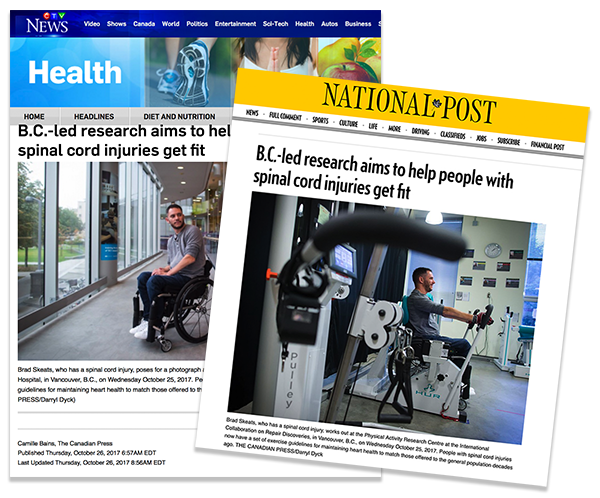

On October 13, Drs. Wolfram Tetzlaff and Cheryl Wellington and their colleagues received funding from the Canada Foundation for Innovation to support innovative research. Announced at an event including Canada’s Minister of Justice, Dr. Wellington was awarded $4.5 million for research into traumatic brain injury, and Dr. Tetzlaff was awarded $1.6 million to refine techniques for modeling and analyzing SCI. Read more about these two awards here.
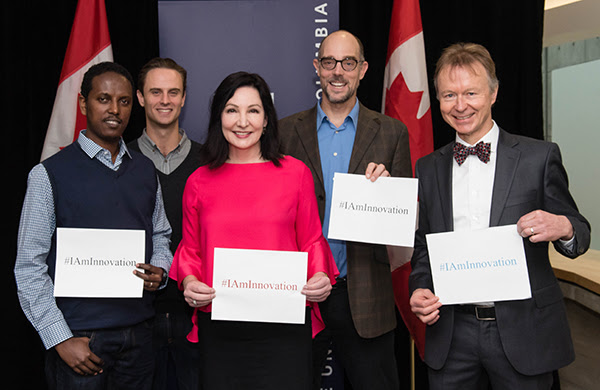
L-R: Cripton lab trainees Abebe Zelalem and Tom Whyte with Cheryl Wellington, Peter Cripton, and Wolfram Tetzlaff at the CFI announcement. (Photo: Paul Joseph, UBC)
Less than a week later, PIs Drs. Christ West and Brian Kwon were awarded US$1.926 million by the US Department of Defense to study how changes to heart function following SCI can impact mobility. Click here to read more about their exciting project!


What are ICORD students up to? All kinds of things, as it turns out. ICORD’s Work Learn social media assistant Adam Mesa caught up with three fellow students to find out about their projects.
![]() is working on his PhD with Drs. Corree Laule and John Kramer. He’s currently studying how an MRI technique called myelin water imaging (MWI) can be used in detecting damage to the spinal cord.
is working on his PhD with Drs. Corree Laule and John Kramer. He’s currently studying how an MRI technique called myelin water imaging (MWI) can be used in detecting damage to the spinal cord.
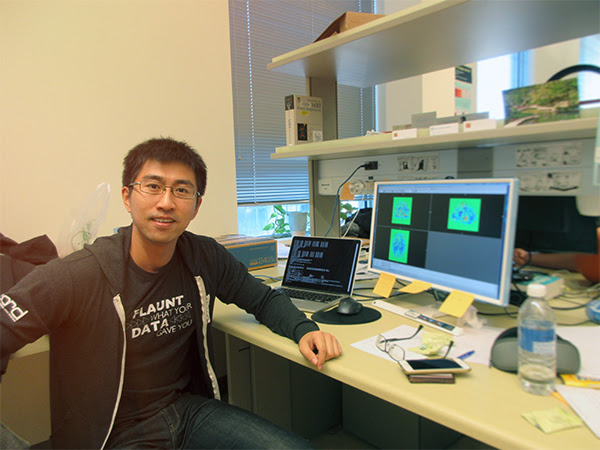 The imaging detects water content in myelin, a sort of helper-cell to neurons. These cells wrap around neurons, forming an insulating sheath that allows for faster signal conduction. While not all neurons are myelinated, many are, and the loss of myelin on these neurons is believed to be the cause of diseases such as multiple sclerosis. In addition, this loss of myelin has been found in both traumatic and non-traumatic spinal cord injury, such as cervical spondylotic myelopathy (CSM).
The imaging detects water content in myelin, a sort of helper-cell to neurons. These cells wrap around neurons, forming an insulating sheath that allows for faster signal conduction. While not all neurons are myelinated, many are, and the loss of myelin on these neurons is believed to be the cause of diseases such as multiple sclerosis. In addition, this loss of myelin has been found in both traumatic and non-traumatic spinal cord injury, such as cervical spondylotic myelopathy (CSM).
Kevin co-authored a paper recently published in the Neurology Journal. In the study of 14 patients with CSM and 18 healthy controls, Kevin and his colleagues found neural deficits correlated with reduced myelin content while conventional MRI didn’t show such correlation. This makes myelin water imaging MRI a useful complementary imaging technique to detect impaired conduction of the spinal cord.
![]() is an SFU co-op student working with ICORD researcher Dr. Tom Oxland. He recently constructed an apparatus to simulate the motion of a human head after frontal impact by a volleyball or other small object. Jacob’s project was inspired by UBC volleyball players and coaches, who noticed an increase in the number of injuries sustained from a specific volleyball model compared to other volleyballs. The goal of Jacob’s project is to see if there is a better, safer option for university-level volleyball athletes with evidence to support changes to policy.
is an SFU co-op student working with ICORD researcher Dr. Tom Oxland. He recently constructed an apparatus to simulate the motion of a human head after frontal impact by a volleyball or other small object. Jacob’s project was inspired by UBC volleyball players and coaches, who noticed an increase in the number of injuries sustained from a specific volleyball model compared to other volleyballs. The goal of Jacob’s project is to see if there is a better, safer option for university-level volleyball athletes with evidence to support changes to policy.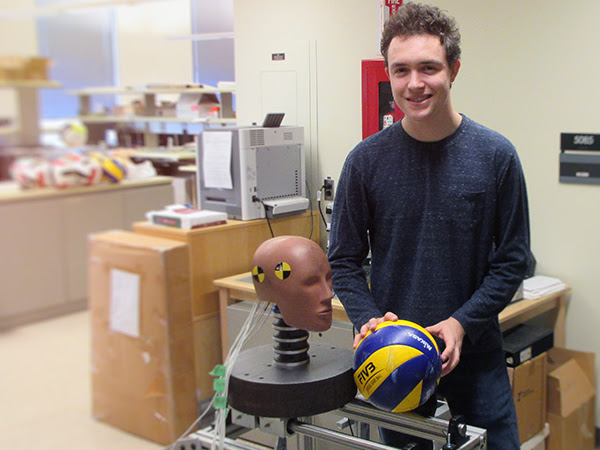
While the Centre for Hip Health and Mobility already has a head impactor, Jacob’s design is more portable. This added portability enables temporary set-up of the apparatus in shared spaces such as at the Volleyball Pitching Machine at UBC’s War Memorial Gym, where Jacob is running his experiment, using the volleyball pitching machine. His apparatus contains nine accelerometers mounted inside the dummy head to measure six degrees of motion, with the dummy head mounted on a 40 kg mass to simulate the inertia of a human torso on head impact.
Jacob hopes that his apparatus will be used by other researchers looking into similar problems. He is also working with a group of master’s students in biomedical engineering, who are studying the effectiveness of water polo helmets on reducing the magnitude of head impacts by a ball.
![]() is a master’s student with Dr. Andrei Krassioukov who is studying the topic of lactation and breastfeeding in SCI. During her research, Amanda found that most women didn’t receive any information on breastfeeding after a SCI, while others received generic breastfeeding information, with no evidence-based recommendations or guidelines available in the literature.
is a master’s student with Dr. Andrei Krassioukov who is studying the topic of lactation and breastfeeding in SCI. During her research, Amanda found that most women didn’t receive any information on breastfeeding after a SCI, while others received generic breastfeeding information, with no evidence-based recommendations or guidelines available in the literature.
Due to how the breast is innervated, breastfeeding experiences and complications vary depending on the level of the spinal cord injury. A breastfeeding mother might not be able to produce enough milk, might fatigue quickly while holding up her baby, or might have episodes of autonomic dysreflexia triggered by breastfeeding.
Amanda is working on creating a set of evidence-based clinical guidelines to educate healthcare providers, and to adapt these guidelines for women living with SCI. While Amanda initially started working at ICORD over two years ago doing discovery science work in her undergraduate degree, she’s glad to have had the opportunity to do more research directly with the women living with SCI. Amanda is supported by a CIHR CGS-M scholarship, and this research project in Dr. Krassioukov’s lab is supported by a grant from the Craig Neilsen Foundation.

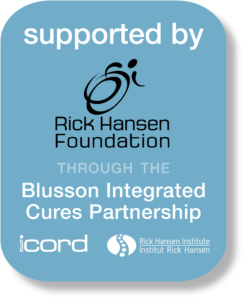
The Blusson Integrated Cures Partnership was formed with the goal of creating innovative solutions for improving outcomes and the quality of life for people living with spinal cord injury. The Best and Brightest Strategy is the one way the BICP is achieving this by identifying and supporting the next generation of researchers who will help reach this goal. In 2014, Drs. John Kramer and Christopher West, after holding postdoctoral positions at ICORD, joined UBC’s School of Kinesiology as Assistant Professors and became Principal Investigators at ICORD.
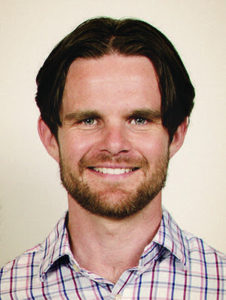 In the last issue of the ICORDian, we updated you on the work of Dr. John Kramer, one of the Principal Investigators who joined ICORD with the support of the Blusson Integrated Cures Partnership’s Best and Brightest Strategy. Now we bring to you the latest on Dr. Christopher West and some of his exciting projects on cardiovascular health, parasports performance enhancement, and more.
In the last issue of the ICORDian, we updated you on the work of Dr. John Kramer, one of the Principal Investigators who joined ICORD with the support of the Blusson Integrated Cures Partnership’s Best and Brightest Strategy. Now we bring to you the latest on Dr. Christopher West and some of his exciting projects on cardiovascular health, parasports performance enhancement, and more.
Dr. West joined ICORD as a Principal Investigator and UBC’s School of Kinesiology as an Assistant Professor in 2014, after holding a postdoctoral fellowship in the lab of Dr. Andrei Krassioukov. ICORD’s focus on heart health has benefited greatly from Dr. West’s scholarship on cardiac physiology and exercise rehabilitation, both in basic science and clinical research.
In one of Dr. West’s major studies, he demonstrated that SCI leads to a reduced amount of blood leaving the heart each beat. He also demonstrated that passive lower-limb exercise is more effective than active upper-limb exercise in preventing heart dysfunction after SCI. In the clinical setting, Dr. West recently authored a major paper with Dr. Brian Kwon, a fellow ICORD-PI and spine surgeon, to demonstrate the usefulness of measuring pressure of the fluid surrounding the spinal cord after injury to help optimize blood flow to the spinal cord during the first few days after SCI.
Dr. West’s research has led to his winning of major grants from the Heart and Stroke Foundation of Canada, the Craig H. Neilsen Foundation, and the United States Department of Defense. In 2016, he was awarded infrastructure funds from the Canada Foundation for Innovation to create his Translational Integrative Physiology Lab at ICORD.
”The BICP has been instrumental in allowing me to develop my independent translational research laboratory. Simply put, without the funding that was made available through the BICP to provide a partnered MSFHR Scholar award (which funds my academic appointment) I would not have been able to make the transition from postdoctoral research fellow to a Principal Investigator at ICORD,” said Dr. West.
This added research capacity has brought new and exciting researchers to work at ICORD. Earlier this year, Dr. West invited Dr. Adrian Alanis to ICORD from Mexico to study vascular-arterial coupling in a clinical research project, which was facilitated by the BICP-sponsored VISIT program, which brings international researchers to Vancouver to work at ICORD.
In a collaboration with Canadian Sport Institute Pacific (CSI Pacific) and Wheelchair Rugby Canada, Cameron Gee, one of Dr. West’s PhD students, is developing methods and interventions for enhancing the cardiovascular function and sport performance of elite Canadian athletes, leading up to the next Paralympic Games in Tokyo, Japan.
“This joint project between elite sport and academia provides an exciting opportunity to work as part of a multidisciplinary team over the coming years,” says Dr. West. “These awards will help bolster the research capacity in parasport—particularly for SCI athletes—as we move towards the Paralympics in 2020.”
Dr. West’s current basic science projects involve probing the pathways responsible for cardiac dysfunction following SCI as well as better defining the temporal development of changes in cardiac structure and function. Dr. West is also directly translating this work to the clinical setting in the form of a collaborative project with Dr. Brian Kwon where together they are conducting the first measures of cardiac function in acutely injured individuals at VGH. This exciting project has also resulted in the recruitment of Dr. Alex Williams, a new postdoctoral research fellow, to Dr. West’s laboratory. In the future, Dr. West plans to start to investigate how heart dysfunction may impact blood flow to the spinal cord and therefore impact neurological outcomes in individuals with SCI.
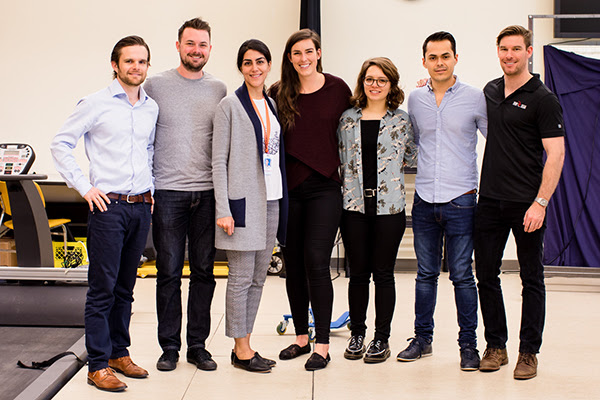
L-R: Dr. West, PhD student Jordan Squair, postdoc Malihe Pourmasjedi, postdoc Alex Williams, Masters student Mary Fossey, postdoc Adrian Alanis, PhD student Cameron Gee. [photo: Jannike Kitchen]

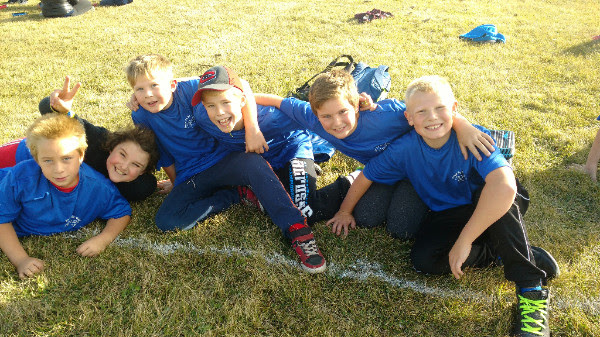
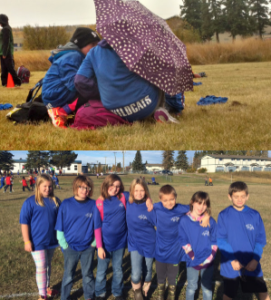 Congratulations and thank you to all the kids and staff who participated in the 19th annual Ultimate frisbee competition in support of ICORD research, hosted by W.L. McLeod Elementary School in Vanderhoof, British Columbia!
Congratulations and thank you to all the kids and staff who participated in the 19th annual Ultimate frisbee competition in support of ICORD research, hosted by W.L. McLeod Elementary School in Vanderhoof, British Columbia!
“We had a wonderful day. We were worried about inclement weather–rain or shine we play–but the day was not too bad. We had a short rain shower and that was the worst of it,” said tournament organizer Kim Worthington.
This year around 200 students participated, raising $1,195.35 for ICORD. Thanks also to event sponsors Four Rivers Coop, SD 91 Nechako Lakes, Lays, Kal Tire and J&S Restaurant.

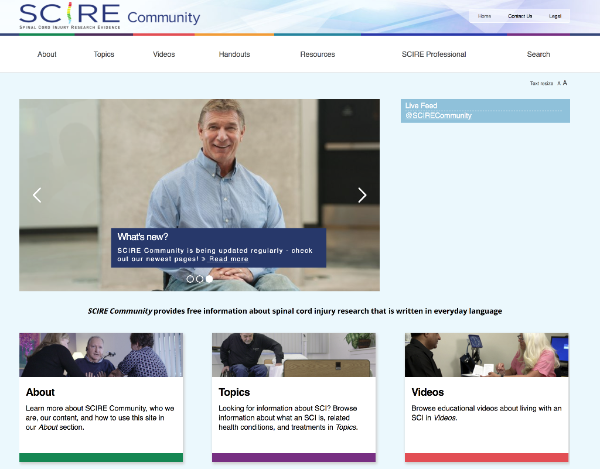
With funding from the Rick Hansen Institute (through the BICP) and led by ICORD PI, Dr. Janice Eng, the SCIRE project team recently launched SCIRE Community, an online resource about spinal cord injury research that is written in everyday language. The site contains summarized research evidence on a variety of topics such as common health issues for people with SCI,  current treatments as well as an extensive video and resource library. Visit SCIRE Community to learn more, and follow their updates on Twitter @SCIRECommunity for all the latest news.
current treatments as well as an extensive video and resource library. Visit SCIRE Community to learn more, and follow their updates on Twitter @SCIRECommunity for all the latest news.

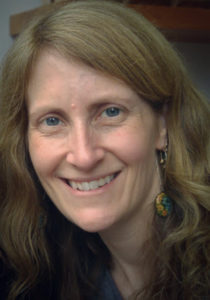
ICORD Principal Investigator Dr. Corree Laule won the 2017 Distinguished Achievement Award from UBC’s Faculty of Medicine. The prize recognizes Dr. Laule’s overall career and her achievements over the past year. Her passion for teaching and science communication has been invaluable to UBC.
Dr. Laule joined the Departments of Radiology and Pathology & Laboratory Medicine and became an ICORD PI in 2013, and she has also taught courses in the Medical Undergraduate Program, and the Departments of Psychiatry and Physics & Astronomy.
Throughout her teaching career she has published numerous studies in her field of expertise in magnetic resonance imagery. Her research has made significant contributions to myelin studies in spinal cord injury and multiple sclerosis research in collaboration with other ICORD PIs.
![]()
Interested in helping ICORD researchers make SCI preventable, livable, and curable? These research studies are in need of participants!
 Enhancing the lives of family, friends, and caregivers who support people with SCI
Enhancing the lives of family, friends, and caregivers who support people with SCI
Researchers in Dr. Heather Gainforth’s lab at the University of British Columbia Okanagan want to understand the priorities and needs of family, friends and partners who support people with an SCI to enhance the lives of those who provide and those who receive support. The results of this study will help direct resources towards areas of research that are most important to family, friends and partners who support people with an SCI. Your participation in this study would include a pre-interview survey and an audio-recorded telephone interview. For more information or to participate, click here.
 Pain and constipation management for people with SCI
Pain and constipation management for people with SCI
Dr. Krassioukov and his research team are interested in investigating the effects of oxycodone-with-naloxone (TARGIN®), an opioid medication approved by Health Canada, on pain management and reducing secondary complications of opioid treatment. Managing chronic pain in individuals with SCI is challenging because many of the medications used have side effects that contribute to health-related complications and limitations that come from having a SCI. For example, SCI can affect bowel function, a condition known as neurogenic bowel, which can have symptoms of diarrhea and/or constipation and be accompanied by potentially life threatening episodes of Autonomic Dysreflexia (AD). If you are on an opioid, this can make constipation worse and put you at risk for more frequent AD. For more information or to participate, click here.
Improving bladder and cardiovascular function following SCI
Dr. Krassioukov and his research team are also recruiting SCI participants for a clinical research study investigating the effects of fesoterodine (TOVIAZ®) on episodes of high blood pressure triggered by bladder contractions. This research study is proposing that treating urinary bladder dysfunction with Toviaz® and preventing the bladder muscle from contracting will decrease the triggers responsible for episodes of high blood pressure that are known as autonomic dysreflexia (AD). By reducing the number of AD episodes, the researchers hope to ameliorate symptoms of this condition, and consequently reduce chronic cardiovascular complications for individuals with SCI. Eligible participants will undergo a series of tests before, during, and after 12 weeks of treatment. Additionally, participants will be asked to complete a series of questionnaires, some of these questionnaires will be completed at home. For more information or to participate, click here.
Click here to learn about all the ICORD studies currently recruiting participants.


You may have heard that VGH is adding new surgical suites on the third floor of Jimmy Pattison Pavilion. As part of the project to find new homes for all the staff currently working in that area of the JPP, Digital Emergency Medicine will be moving into the BSCC before the end of the year into the area on the third floor previously occupied by the ICORD admin group, and ICORD’s Admin team has relocated to the the south east area of the third floor (where the kitchen was). Next time you’re in the BSCC, drop by and visit our new space. You’ll see us as soon as the elevator doors open!
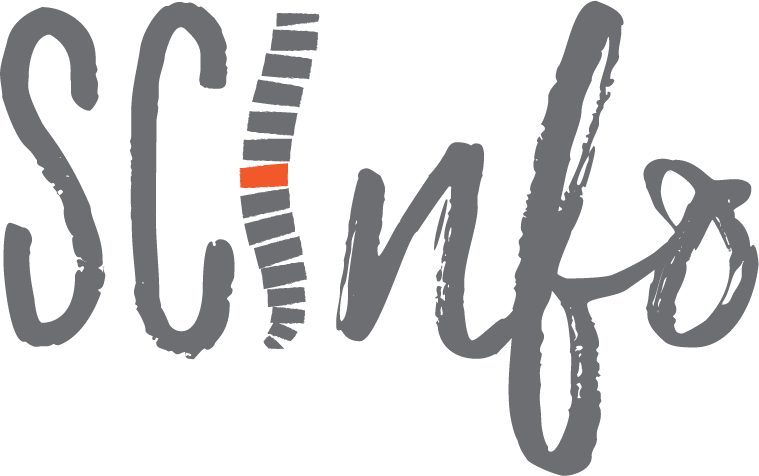 Did you know that volunteers at our SCI Community Resource Centre prepare summaries of scientific papers and post them on our SCInfo blog? If you’re interested in what’s going on in SCI research around the world, this is a good place to look.
Did you know that volunteers at our SCI Community Resource Centre prepare summaries of scientific papers and post them on our SCInfo blog? If you’re interested in what’s going on in SCI research around the world, this is a good place to look.


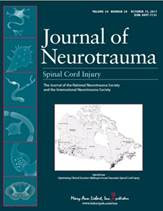
In collaboration with more than 50 researchers and clinicians across Canada, the Rick Hansen Institute (RHI) has published a special focus issue titled “Optimizing Clinical Decision Making in Acute Traumatic ![]() Spinal Cord Injury” in the Journal of Neurotrauma. The 13 peer-reviewed articles examine SCI care across the care continuum using data from the Rick Hansen SCI Registry and are based on findings from the Access to Care and Timing project. RHI’s website contains an easy-to-read summary of the key questions and answers the Focus Issue addresses, along with links to the full articles. Check out the webpage!
Spinal Cord Injury” in the Journal of Neurotrauma. The 13 peer-reviewed articles examine SCI care across the care continuum using data from the Rick Hansen SCI Registry and are based on findings from the Access to Care and Timing project. RHI’s website contains an easy-to-read summary of the key questions and answers the Focus Issue addresses, along with links to the full articles. Check out the webpage!

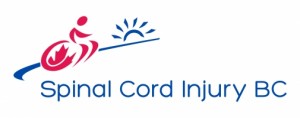
Get your clicking finger  ready! Spinal Cord Injury BC’s annual Holiday Auction is live! Find the perfect gift, skip the long lines and support a great cause. Find everything from hotel stays, fine dining, spa treatments, event tickets and MORE! Take a peek and spread the word.
ready! Spinal Cord Injury BC’s annual Holiday Auction is live! Find the perfect gift, skip the long lines and support a great cause. Find everything from hotel stays, fine dining, spa treatments, event tickets and MORE! Take a peek and spread the word.

Do you know any facility owners or tenants who want their buildings and sites to be more accessible? The recently-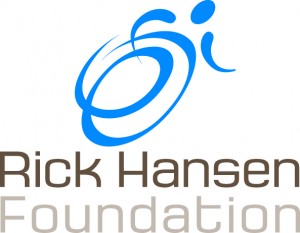 launched Rick Hansen Foundation Accessibility Certification™ (RHFAC), is a LEED-style rating system that evaluates the accessibility of commercial, institutional and multi-family residential buildings and sites, with the support of the Government of BC. The program is the first of its kind to measure a building or site’s level of meaningful access, based on the holistic experience of people with mobility, vision, or hearing disabilities.
launched Rick Hansen Foundation Accessibility Certification™ (RHFAC), is a LEED-style rating system that evaluates the accessibility of commercial, institutional and multi-family residential buildings and sites, with the support of the Government of BC. The program is the first of its kind to measure a building or site’s level of meaningful access, based on the holistic experience of people with mobility, vision, or hearing disabilities.
The Rick Hansen Foundation is offering approximately 1,100 complimentary registrations and ratings in BC (valued up to $5,500) until March 2019. Once rated, organizations may qualify to apply for up to $20,000 in funding for accessibility improvements through our new BC Accessibility Grants Program.
Whether you are an owner or tenant – get started by booking a rating by emailing access@rickhansen.com.
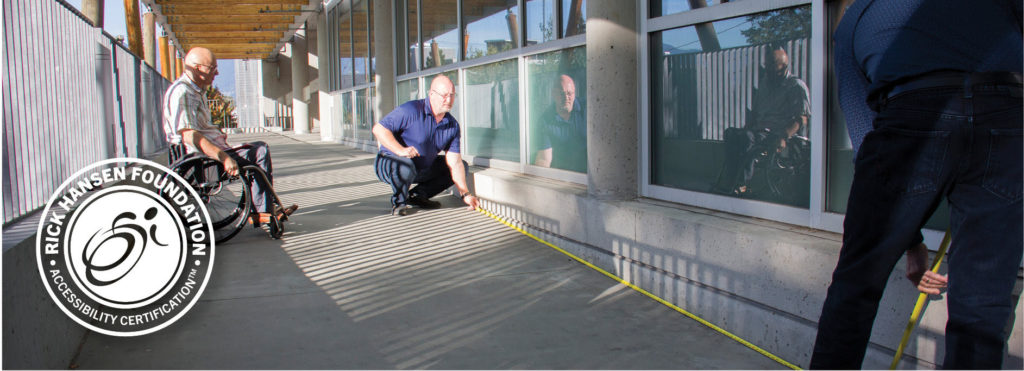


ICORD and the Rick Hansen Institute are working together to identify new treatments for SCI and apply existing treatments for other neurological disorders, injuries and diseases to SCI. Funded by the Rick Hansen Foundation, the Blusson Integrated Cures Partnership provides ten years of stable funding for several multi-year research projects as well as new faculty positions within ICORD, international exchanges to encourage collaboration, research-related events (like the Annual Research Meeting and seminar series) and a consumer engagement strategy which aims to provide people with SCI and their supporters with evidence-based information about the healthcare, services and resources available to best support recovery after SCI and increase consumer involvement in the research process.
We are very grateful for this generous support.

Thanks for reading this issue of The ICORDian – we hope you enjoyed it! Please subscribe and have future issues delivered to your inbox. If you have any comments about this issue or suggestions for future ones, please contact us.

